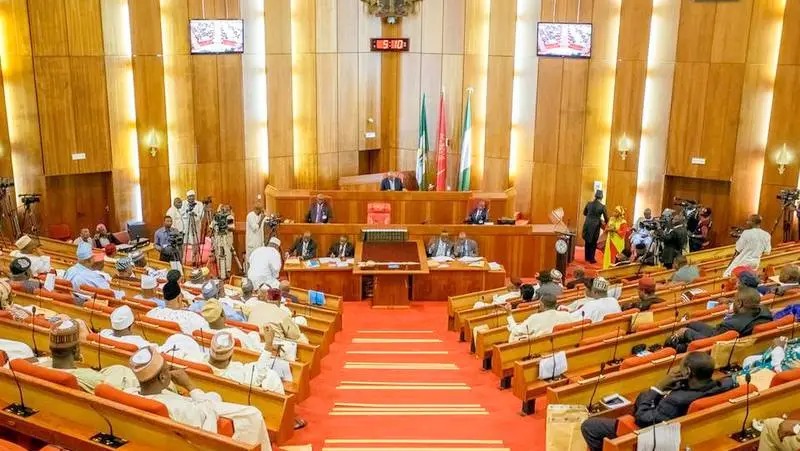Strike out 6-year tenure bill for President, governors, others, group tells lawmakers

The Accountability Lab Nigeria, an organization committed to promoting accountability at all levels, has called on the Senate and the House of Representatives to strike out the 6-year tenure bill for the President, Governors, and Local Government Area Chairpersons.
In a statement by Odeh Friday, Director, Accountability Lab Nigeria, on Tuesday 11th November 2024, the organization expressed belief that the passage of the bill would be a step backward for the nation’s democracy, stressing that their concerns are not just theoretical. They based their concerns on a careful examination of the possible outcomes of this legislation, saying “this kind of risk is beyond our means”.
Recall that, on July 17, 2024, the House of Representatives passed a bill through its first reading that seeks to amend the Constitution of the Federal Republic of Nigeria 1999 (as amended) to establish a single 6-year term for the offices of the President, State Governors, and Local Government Areas Chairmen.
The amendment aims to reduce the waste associated with periodic elections every four years. The bill seeks to alter Sections 7, 135, 137, 180, and 182(1) of the Constitution of the Federal Republic of Nigeria 1999 (as amended).
The group commended the House of Representatives for rejecting the bill on November 21, 2024, noting that the decision underscores their commitment to upholding the principles of good governance and democracy.
“This decision aligns with the tenets of representative governance by preserving the opportunity for regular accountability through shorter election cycles, ensuring leaders remain responsive to the needs of their constituents,” the statement read.
They enjoined the Senate to emulate the move by the House of Representatives by rejecting the bill should it get to them.
“This bill, which seeks to extend the tenure of elected officials (2 terms of six years reflects the mathematics of 3 tenures of 4 years), raises significant concerns about its implications for democratic principles and governance in our nation. We believe there are more pressing issues currently plaguing the country that need the urgent attention of the president, including insecurity, inflation, and human rights violations,” the statement added.
“In countries like Zimbabwe, where President Robert Mugabe extended his tenure through constitutional amendments, there was a notable increase in governance issues and reduced public accountability. Frequent elections ensure that leaders remain responsive to the needs and concerns of their constituents. Extending the tenure period from four to six years reduces the frequency of elections.
“With extended tenures, we have fewer opportunities to influence the performance of our government and address concerns, leading to the diminishing of the regular accountability of elected officials to the electorate. The 6-year term doesn’t show there will be improvement in low voter turnout , an indication of voter apathy, particularly among youth.
“Additionally, in several other African countries, extending presidential terms has been associated with democratic backsliding, thereby undermining good governance. Longer tenures can erode democratic norms, leading to weaker institutional checks and balances and reducing the overall accountability of elected officials.
The group urged the Senate to rather focus on strengthening the Electoral Act and ensuring the independence and accountability of the Independent National Electoral Commission.
“This will enhance voter registration, increase voter participation in elections, and improve the process of selecting effective and responsible political officeholders, ultimately fostering good governance.
“We pledge to continue to advocate in the best interest of Nigeria and its citizens,” the statement concluded.





